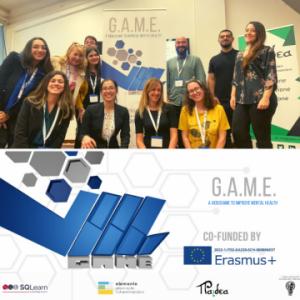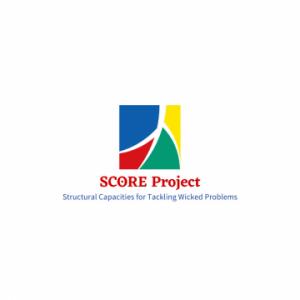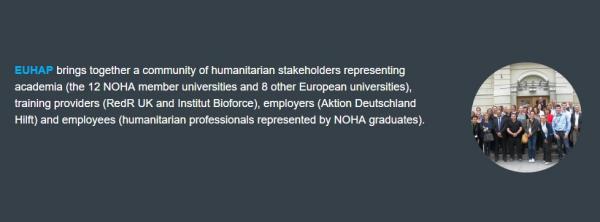Launch of the VideoGAme to improve Mental hEalth (GAME) project, co-funded by the EU Erasmus+ programme
The project GAME - videoGAme to improve Mental hEalth aims to act on the stigma by increasing the awareness of young people about mental illnesses. The project addresses the topics of early school leaving and obstacles in education, inclusion of marginalized young people, physical and mental health and well-being, by creating an innovative videogame and an e-learning course.
GAME is co-funded by Erasmus+ and will be implemented in the period 2022 – 2025 by Paidea (Italy) as coordinator, with SQLearn (Greece), Sofia University St. Kliment Ohridski (Bulgaria) and Elemento - Associação Ludopedagógica (Portugal) as partners.
The kickoff meeting took place in Naples in October 2022, where the partners analyzed the overall project and its outputs, and defined the forthcoming taks
Follow the project's Facebook page for more news: https://www.facebook.com/profile.php?id=100089028406900
The project Structural Capacities for Tackling Wicked Problems (SCORE) aims to develop and pilot new models for cooperation and research in the fight against climate change
Modern policy implementation and organisational frameworks fail to create a sustainable approach in the resolution of wicked problems as growing global concern. They include problems that are hard to define, difficult to solve and need various approaches for their potential solution. Poverty, climate change, health, gender equality, and justice are all wicked problems that are part of the SDG Agenda.
SCORE aims to create a cooperation structure and develop a model for tackling these problems. Wider transnational capacities are involved, proposing a bottom-up approach in social-planning processes. Our aim is to demonstrate that such problematic can be solved through cautious approach of HEIs in the process.
SCORE promotes and strengthens the European cooperation on this topic while designing and piloting novel research in tackling climate change. Specific topics that are to be addressed include environment and climate change, inter-regional cooperation and research and innovation. The project consortium will mutually benefit by active participation. Practically, project participants will be able to demonstrate decisiveness and capability in solving numerous problems in the relevant area, setting the foundation for other organisations to be able to implement such approaches. Furthermore, through the project implementation and follow up phases, a new generation of scholars will gain the knowledge, tools and methods for solving wicked problems. Sharing good practices and developing inter-connected higher education systems will be supported through sustainability network, models, e-tools and guidelines generated by SCORE.
SCORE is co-funded by the Erasmus+ programme of the EU and is implemented by a consortium coordinated by Ss. Cyril and Methodius University in Skopje (Republic of North Macedonia) and Sofia University St. Kliment Ohridski (Bulgaria), University of Ioannina (Greece) and The Czech University of Life Sciences Prague (CZU) (Czech Republic) as partners.
More information on: https://score-eu.org
MyHUB – a one-stop-shop on inclusion practices, tools, resources and methods for the pedagogical staff at formal and non-formal educational institutions
Start date: 31/01/2019 End date: 30/01/2022
Coordinator contact
Prof.Snezhana Ilieva Dsc,
Head of University Center for Conflict Management and Organizational Research, Faculty of Philosophy, Sofia University ”St.Kl.Ohridski”
boul.Tsarigradsko shosse 125, office 201
The European Commission support for the production of this publication does not constitute an endorsement of the contents which reflects the views only of the authors, and the Commission cannot be held responsible for any use which may be made of the information contained therein.
Main aims:
- To integrate awareness about inclusive education into educational institutions’ regular professional development activities.
- To improve knowledge, skills (including advocacy skills) and compe- tences of the pedagogical staff towards implementation of inclusive learning practices based on exiting good practices.
- To improve the abilities of the pedagogical staff towards assessment of abilities and identification of needs of each student with disability.
- To improve the existing teaching methods by upscaling of best prac- tices in inclusive learning implementation of already existing and measured as successful tools, resources and methods.
Target groups:
- Pedagogical staff at early childhood and schools: teachers, trainers, head teachers, principals, headmasters, resource tutors
- Social and youth workers
- Non-governmental organizationsEducational planners / Policy makers – local educational authorities, municipality departments on inclusive education policies, dedicated departments at Ministry of education and science, Ministry of youth and sports, etc.
Following products will be developed:
- Collection, systematisation and categorisation of the good practices
- European inclusive learning hub containing inclusive searchable/ usable learning resources, methods, tools and mechanisms already tested, approbated and deployed in other countries.
- Pilot upscaling and implementation into practice
European Humanitarian Action Partnership (EUHAP)
European Humanitarian Action Partnership (EUHAP), coordinated by the Network on Humanitarian Action (NOHA) and funded by the European Commission Erasmus+ Programme aims to promote the exchange of best and innovative practices as well as to improve the quality and efficiency of education in order to boost competences, increase employability, enhance opportunities and professionalization. The project ran between 2014 and 2017 - Project № I4PS0003 (2014-1-BEO1-KA203-000920).
EUHAP is a collaborative community of humanitarian stakeholders representing academia (12 NOHA member universities and 8 other European universities), training providers (Redr UK and Institut Bioforce), employers (Aktion Deutschland Hilft) (humanitarian professionals represented by NOHA graduates). The initiative is primarily concerned with strengthening the professionalization of the delivery of humanitarian aid through exchange of best and innovative practices as well as improvement of the quality and efficiency of the education and exploring the linkages between competencies, occupations and qualifications. It will be achieved by delivery of four primary outputs Humanitarian action Professions, Humanitarian action Recognition, Humanitarian action E-learning, Humanitarian action map. More specifically the project attempts to:
- establish clear linkage between occupations, skills/competences and qualification in the sector;
- facilitate the validation and recognition of humanitarian qualifications, identify learning pathways from vocational and other education types in the humanitarian sector to higher education;
- improve access to humanitarian education through the development of Open Educational Resources;
- promote a transnational community of knowledge and practice by developing an interactive platform of humanitarian activity in Europe;
- establish a European observatory of humanitarian activity with recognized data collection laboratories in each member state;
The initiative builds upon EUPRHA (European Universities on Professionalization on Humanitarian Action), project ran on 2011-2014.
Participants in the project:
Universities:
- University of Graz, Austria
- Catholic University of Louvain, Belgium
- Sofia University, Bulgaria
- Palacky University, Czech Republic
- University of Copenhagen, Denmark
- Aix Marseille University, France
- Ruhr University Bohum, Germany
- University of Iceland, Iceland
- University College Dublin, Ireland
- University of Pavia, Italy
- Vilnius University, Lithuania
- University of Malta, Malta
- University of Groningen, Netherlands
- Norwegian University of Science and Technology, Norway
- University of Warsaw, Poland
- Alexandru Ioan Cuza University, Romania
- Comenius University in Bratislava, Slovakia
- University of Deusto, Spain
- Uppsala University, Sweden
- Oxford Brookes University, United Kingdom
Organizations:
- Bioforce, France
- Aktion Deutschland Hilft, Germany
- RedR, United Kingdom
Project leaders
Project management & coordination
Sophie Borel, NOHA General Manager
Artur Malantowicz, NOHA Operations Manager
For Sofia University:
Project manager - Prof. Snezhana Ilieva, PhD, DSci,
Members: Chief Assistant Professor Plama Hristova, PhD; Chief Assistant Professor Valeria Vitanova, PhD
http://euhap.eu/euhap/participants-euhap/
http://euhap.eu/ha-professions/- On this link can see the results of the working group 1 in this project (including the Sofia University participation and contribution), which has set up an Organogram of the positions in the Humanitarian Organizations and the characteristics, qualifications and skills necessary for the different positions in the Humanitarian Organizations, which are potential guarantee for the effective activities of the humanitarian workers.
"RefugeeClassAssistance4Teachers"
REFUGEEClassAssistance4Teachers [2016-1-TR01-KA201-034527]
The project aims at providing support and training for teachers about the refugees’ rights, effective intercultural communication, conflict and stress management, focusing on the inclusion and integration of refugees aged up to 18 years.
Project partners:
- Yildirim Beyazit Universitesi, Turkey – project coordinator;
- Ankara Milli Egitim Mudurlugu, Turkey;
- Goc Idaresi Genel Mudurlugu), Turkey;
- Sofia University “St. Kliment Ohridski”, Bulgaria;
- National Association Of Professionals Working With People With Disabilities, Bulgaria;
- PhoenixKM BVBA, Belgium;
- N.G.O. Civis Plus, Greece;
- Softqnr, Serbia.
The main activities include training and developing of teachers’ skills in the following areas:
- intercultural communication and tolerance;
- conflict resolution
- stress management;
- emotional intelligence;
- socio-cultural competence and sensitivity.
Project activities provide field research on the challenges faced by teachers in Bulgaria, Belgium, Turkey, Greece and Serbia, working with refugee children in their classes, and conducting six transnational meetings to discuss and coordinate joint action.
Project outcomes:
- Portal for mutual support between teachers, providing a wide variety of resources that will be available free of charge;
- Methodological guidance for school principals / head teachers;
- Illustrated educational materials and handbook for teachers;
- Auxiliary training videos for teachers, based on actual cases;
- Mobile platform and interactive tools for teachers.
As a project partner, Sofia University “St. Kliment Ohridski” is represented by the University Centrе for Conflict Management and Organizational Studies at the Faculty of Philosophy, with the support of Erasmus+ (European Commission).
Project coordinator on behalf of Sofia University "St. Kliment Ohridski": Prof. Snezhana Ilieva, DSci
Duration: 36 months



